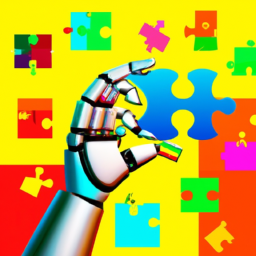Understanding the Role of AI in Digital Marketing
Digital marketing is constantly evolving, and one of the most significant advancements in recent years has been the integration of Artificial Intelligence (AI) into marketing strategies. AI has the potential to revolutionize the way businesses promote their products and services by analyzing data, automating tasks, and personalizing customer experiences. In this article, we will explore the various ways AI is being used in digital marketing and provide examples of successful applications.
1. Data Analysis and Predictive Analytics
AI is adept at analyzing vast amounts of data and extracting valuable insights. By leveraging machine learning algorithms, AI can identify patterns, trends, and correlations that may not be immediately apparent to marketers. This helps businesses make data-driven decisions and optimize their marketing strategies.
For example, Netflix uses AI algorithms to analyze user data and make personalized recommendations. By analyzing viewing histories, preferences, and ratings, Netflix’s AI can suggest content tailored to each individual user’s interests, increasing customer satisfaction and engagement.
2. Chatbots and Virtual Assistants
Chatbots and virtual assistants powered by AI have become increasingly ubiquitous in digital marketing. These AI-powered tools can engage with customers in real-time, answer their queries, provide product recommendations, and even complete transactions.
One notable example is Sephora’s Virtual Artist chatbot. This AI-powered assistant uses facial recognition technology to allow users to virtually try on different makeup looks. By engaging customers in an interactive and personalized way, Sephora enhances the customer experience and increases brand loyalty.
3. Content Creation and Personalization
AI can create and personalize content at scale, saving businesses time and resources. With Natural Language Processing (NLP) capabilities, AI can generate dynamic content, such as product descriptions, blog posts, and social media captions.
A successful example of AI-powered content creation is The Washington Post’s Heliograf. This AI technology generates news articles based on data inputs and predefined templates. By automating content creation, The Washington Post can quickly produce personalized content for its readers and free up journalists to focus on more complex stories.
4. Customer Segmentation and Targeting
AI allows businesses to segment and target their customers more effectively. By analyzing data such as demographics, browsing behavior, and purchase history, AI algorithms can identify customer segments with similar characteristics and preferences.
Facebook Ads uses AI to optimize ad targeting. Through its AI-powered algorithms, Facebook analyzes user data to identify individuals within specific target audiences who are most likely to engage with ads. This maximizes the effectiveness of advertising campaigns and increases return on investment.
5. Dynamic Pricing and Recommendations
AI can analyze market trends, competitor pricing, and customer behavior to determine optimal pricing strategies. By leveraging this data, businesses can dynamically adjust prices in real-time to maximize revenue.
An excellent example of AI-powered dynamic pricing is Uber’s surge pricing feature. During periods of high demand, AI algorithms automatically increase prices to incentivize more drivers to join the network. This ensures that supply meets demand, resulting in shorter wait times for users and increased revenue for Uber.
The Future of AI in Digital Marketing
The role of AI in digital marketing is only set to expand in the future. With advancements in natural language processing, computer vision, and deep learning, AI will become even more capable of understanding and engaging with customers.
However, it’s essential to strike a balance between the efficient use of AI and maintaining a human touch. While AI can automate tasks and provide personalized experiences, human creativity and intuition will remain crucial in crafting compelling marketing campaigns.
In summary, AI’s role in digital marketing spans data analysis, chatbots, content creation, customer targeting, and pricing. By harnessing the power of AI, businesses can gain valuable insights, increase customer engagement, and drive revenue growth. Embracing AI in digital marketing is not just a trend; it’s a strategic advantage for businesses in an increasingly competitive landscape.











